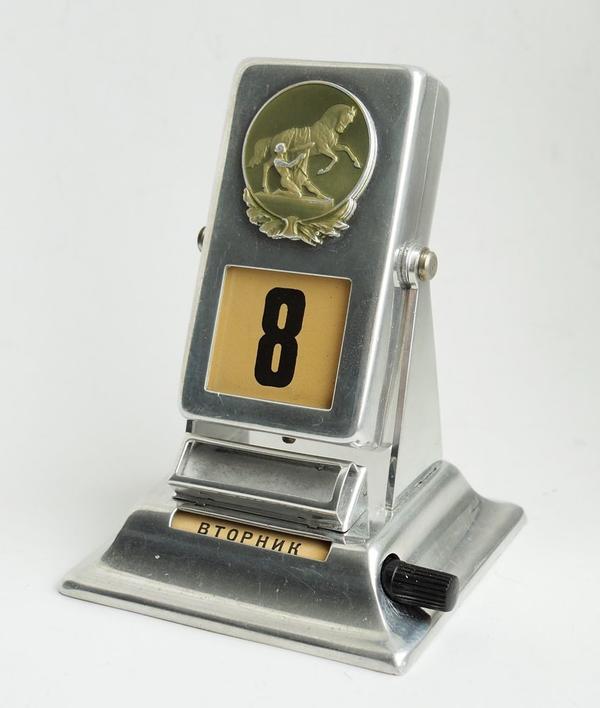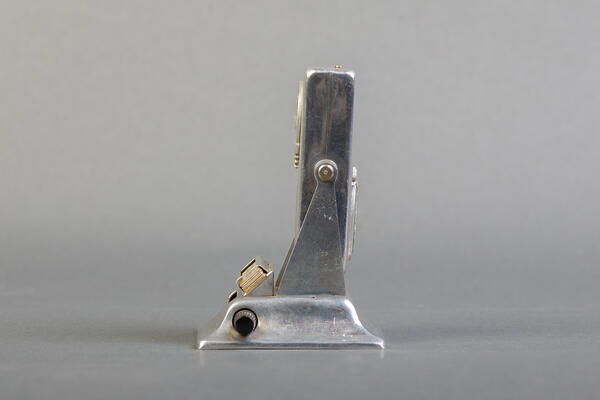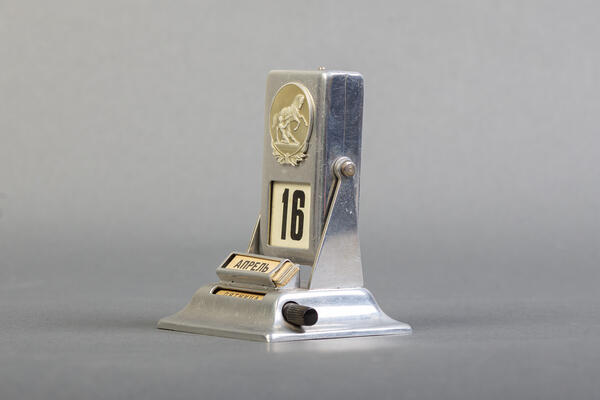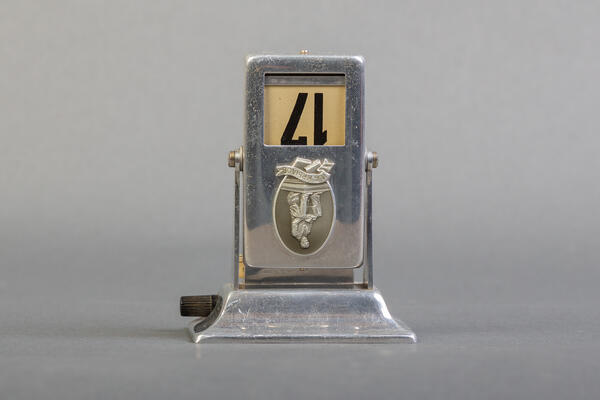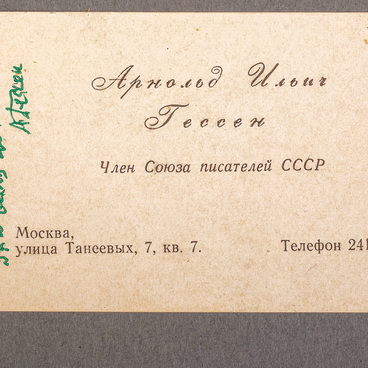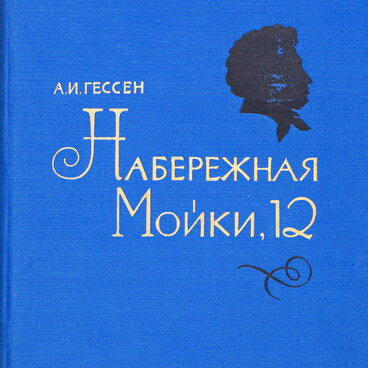Arnold (named Aaron at birth) Ilyich Gessen was born in the town of Korocha and graduated from a gymnasium there but spent most of his life in Moscow and Saint Petersburg. There he distinguished himself as a journalist and later a Pushkinist, met many writers, politicians, and people of culture and art, and joined the USSR Union of Writers.
In 1963, at the age of 85, Arnold Gessen wished to visit his homeland and sent a letter to Korocha to the address where the men’s gymnasium had once been located. In the letter, Gessen was interested in the fate of the town and the gymnasium’s building and asked for permission to come to visit. A response letter with detailed answers to questions and an invitation was compiled by Mikhail Ivanovich Marchenko, a veteran of war and labor.
In the autumn of 1964, Arnold Gessen and his wife Maria Yakovlevna Gessen arrived in Korocha. They were met by Mikhail Ivanovich Marchenko, as well as a member of the district committee Vasily Vasilyevich Litvinov and Belgorod pioneer children. At the former gymnasium (by that time — a boarding school for children with speech impediments), pupils and teachers were waiting. The writer spent ten days in his hometown, got acquainted with the local poet Mikhail Afanasyevich Frolov, and participated in meetings with students at the schools in Korocha, Velikomikhaylovka, Bekhteyevka and Annovka, as well meetings with workers of a local food processing plant and the town council.
For several years, the eminent writer sent his new books, articles, and studies, as well as articles that other authors wrote about him, to Korocha. In turn, the Korocha residents did not forget about him: a memorial plaque with a bas-relief portrait and a commemorative inscription was mounted on the building of the former gymnasium. Later, in 2005, in the courtyard of the same gymnasium, a monument was unveiled — a copper bust of Gessen made by Anatoly Sergeyevich Smelyi.
Today, the collection of the Belgorod Literature Museum contains Gessen’s archives, books, and some of his personal belongings. Among them is a metal perpetual loose-leaf calendar from the writer’s office. Days of the week, dates and months on this calendar are set manually. The upper rotating element shows the date, and the window below shows the month. The base has a built-in mechanism for changing the days of the week. Similar desktop souvenirs were mass-produced at the Odesa Household Products Factory and the Kharkiv Plant of Non-Standard Equipment. Products, manufactured by Goznak in Leningrad, were distinguished with high quality.
In 1963, at the age of 85, Arnold Gessen wished to visit his homeland and sent a letter to Korocha to the address where the men’s gymnasium had once been located. In the letter, Gessen was interested in the fate of the town and the gymnasium’s building and asked for permission to come to visit. A response letter with detailed answers to questions and an invitation was compiled by Mikhail Ivanovich Marchenko, a veteran of war and labor.
In the autumn of 1964, Arnold Gessen and his wife Maria Yakovlevna Gessen arrived in Korocha. They were met by Mikhail Ivanovich Marchenko, as well as a member of the district committee Vasily Vasilyevich Litvinov and Belgorod pioneer children. At the former gymnasium (by that time — a boarding school for children with speech impediments), pupils and teachers were waiting. The writer spent ten days in his hometown, got acquainted with the local poet Mikhail Afanasyevich Frolov, and participated in meetings with students at the schools in Korocha, Velikomikhaylovka, Bekhteyevka and Annovka, as well meetings with workers of a local food processing plant and the town council.
For several years, the eminent writer sent his new books, articles, and studies, as well as articles that other authors wrote about him, to Korocha. In turn, the Korocha residents did not forget about him: a memorial plaque with a bas-relief portrait and a commemorative inscription was mounted on the building of the former gymnasium. Later, in 2005, in the courtyard of the same gymnasium, a monument was unveiled — a copper bust of Gessen made by Anatoly Sergeyevich Smelyi.
Today, the collection of the Belgorod Literature Museum contains Gessen’s archives, books, and some of his personal belongings. Among them is a metal perpetual loose-leaf calendar from the writer’s office. Days of the week, dates and months on this calendar are set manually. The upper rotating element shows the date, and the window below shows the month. The base has a built-in mechanism for changing the days of the week. Similar desktop souvenirs were mass-produced at the Odesa Household Products Factory and the Kharkiv Plant of Non-Standard Equipment. Products, manufactured by Goznak in Leningrad, were distinguished with high quality.

